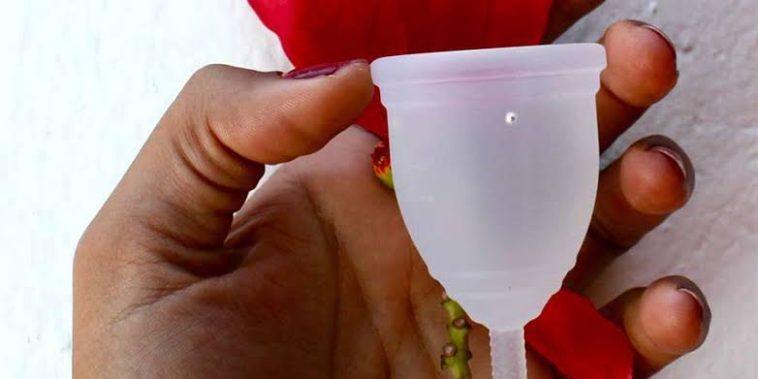Introduction
What do you know about Menstrual Cups? According to Healthline, a menstrual cup is a type of reusable feminine hygiene product. It is a small, flexible funnel-shaped cup made of rubber or silicone that you insert into the vagina to catch and collect period fluid.
My organization is very passionate about women having access to eco-friendly, biodegradable and sustainable Menstrual Hygiene Products. We stumbled upon Menstrual cups during one of our field studies. Which informed our interest in the use of menstrual cups for women of reproductive age.

Menstrual Cups
Did you know that cups can hold more blood than other methods, leading many women to use them as an eco-friendly alternative to tampons and that depending on your flow, you can wear a cup for up to 12 hours? There’s so much to learn about Menstrual Cups, are you willing to try one?
Sometime in the past, our organization, Girls for Development Goals Foundation was expecting some Menstrual Cups donation from Denmark, so we began sampling ideas and carrying out a Needs Based Assessment to create awareness, stir up demand for the product, etc. What we discovered was amazing and shocking. Our field study showed that there is a high demand for menstrual cups particularly reproductive women of over 30 years of age.
Firstly, mothers did not like the idea of a Menstrual Cup because they didn’t want their adolescent menstruating daughters to know that things can go into their vagina, as their imaginations could run wild. Other major concerns were about hygiene and whether or not virgins could use this cup without breaking their hymen. We spoke to a Medical Doctor friend who is from Northern Nigeria. She told us that most of her female unmarried patients do not agree to insert drugs (drugs that require vaginal insertion) for obvious reasons. She went on to state that even the sexually active unmarried ones would hold same claim for cultural reasons. So, from her perspective, target audience in such populations would be married women. Access to clean water is of essence as it is for other Menstrual Hygiene Products especially with reusable sanitary pads. Hence, targeted population should be married women in urban areas.
This emphasizes the point that menstruation/period poverty has a huge root in culture. The need for parents, especially in times like this to build good relationships with their daughters cannot be overemphasized – that is, sex education.
Menstrual cups come in sizes and there are a number of factors to take into consideration before you get a cup. They are:
-
Age
-
Whether you’ve given birth vaginally
-
Volume of flow: Heavy flowing girls/women should go for bigger cups.
-
Cup capacity/size
Smaller menstrual cups are usually recommended for women under 30 years old who have not delivered vaginally. Larger sizes are often recommended for women who are over 30 years old, have given birth vaginally, or have a heavier period. There are also cup sizes suited for virgins.
With this, there is need to intensify the teaching of sex education at home and at school. Young girls need to be guided to avoid problems of vaginal infections (Sexually Transmitted Infections) and unwanted pregnancies. Against this background, we can say Yayy to menstrual cups.
References
Dorfner M, 2016. Menstrual cups vs.Tampons: Things you Might not Know. newsnetwork.mayoclinic.org/discussion/menstrual-cups-vs-tampons-things-you-might-not-know-about-the-cup/
Laughlin-Tommaso SK,2018. Women’s Health: What can You tell me About the Menstrual cup? mayoclinic.org/healthy-lifestyle/womens-health/expert-answers/menstrual-cup/faq-20058249
North B.B, et al., 2011. Preclinical, Clinical, and Over-the-counter Postmarketing Experience with a new Vaginal cup: Menstrual Collection. DOI:doi.org/10.1089/jwh.2009.1929
Youngwomenshealth.org/2013/03/28/period-products, 2016 Periods products: Information about tampons, pads, and more.
Wiebe E.R, et al 2012. Does Using Tampons or Menstrual Cups Increase early IUD Expulsion rates? DOI: doi.org/10.1016/j.contraception.2011.12.002
This post was created with our nice and easy submission form. Create your post!







Thank you for creating this awareness. I think menstrual cups are welcome development, in our developing economy. I appreciate your passion, consistency and commitment for what you do.